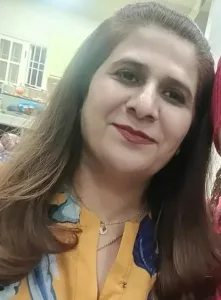By Dr Aitta Anwar
Ancient wisdom was based on experiential learning. It was mostly result-oriented. A few concepts from the past were proved wrong on testing by modern scientific methods. But there is a treasure of knowledge from the past which has proved to be effective. They have a strong scientific basis. The dichotomy between age-old wisdom and modern cutting-edge technology may seem irreconcilable. But a fascinating paradigm shift is developing. Modern science and ancient wisdom are joining hands to develop a holistic approach towards health and wellbeing.
Ancient wisdom and modern medicine represent two different approaches to understanding and treating health and wellness, yet they often intersect and complement each other. There is a timeless wisdom of how to be healthy in mind and body. It is important, that harmless age-old methods, whose benefits are scientifically proven should be adopted by physicians. In addition to that, more research should be done on other modalities of treatment from the past, which are not yet touched. In an era of quick fixes, appeal lies in their holistic and patient-centered approach. By acknowledging the link between physical health, emotional well-being, and environmental factors, these ancient traditions offer a path to sustainable health. It resonates with all modern people who seek long-lasting and authentic solutions.
In recent years there has been growing interest in integrating ancient wisdom practices with modern medical approaches. This integrative medicine approach seeks to combine the best of both worlds, leveraging scientific evidence while incorporating traditional healing modalities. For example, herbal medicine, meditation, and yoga are increasingly being used alongside conventional medical treatment to manage conditions like chronic pain, anxiety, and irritable bowel syndrome.
Extensive research is done on mind and body connection. Ancient medical systems often recognized the interconnectedness of mind, body, and spirit in maintaining health. It negates mind and body dualism. We have enough evidence from research to prove that the mind affects the body and the body affects the mind. Practices such as mindfulness, yoga, and meditation, originating in the ancient traditions of Buddhism, are now widely recognized for their therapeutic benefits in stress reduction, pain management, and mental well-being. We are using mindfulness-based stress reduction and mindfulness-based cognitive therapy as a part of modern disease treatment.
Ancient medical traditions often took a holistic approach to health. Considering the individual as a whole rather than focusing solely on symptoms or specific organs. To be healthy in both mind and body we have to adopt a holistic approach. Modern integrative medicine and holistic health practices draw upon this concept, incorporating aspects of ancient wisdom such as nutrition, lifestyle changes, and alternative therapies alongside conventional medical treatments.
Then there are herbal remedies that have been used for centuries for the treatment of different ailments. Out of them we now know by scientific evidence, that many are beneficial for healing. These remedies are used for their anti-inflammatory, digestive, and pain-reducing effects. They can be made part of modern-day treatment. Their benefits and side effects are being studied extensively. Diets are being planned for autoimmune diseases, cancers, and other diseases.
If we go beyond conventional medical science, we can discover the root of healing, health, and happiness through these timeless medical practices. Principles of positive psychology, along with mindfulness and compassion can protect us from disease and keep us healthy. Ancient wisdom and modern medicine both emphasize the importance of preventive care. Modern medicine often focuses on vaccination, screening, and lifestyle intervention. Ancient wisdom may include practices such as dietary recommendations, herbal remedies, and mindfulness practices to maintain health and prevent illness.
While modern medical practice relies heavily on scientific evidence and technological advancement, the principles and practices of ancient wisdom continue to be studied, adopted, and integrated into contemporary healthcare. This integration reflects a growing recognition of the value of traditional knowledge in promoting health and well-being, however, it is important to approach ancient practices with a critical and evidence-based perspective to ensure safety and efficiency in modern medical contexts.
Overall while ancient wisdom and modern medicine may diverge in their methodologies and philosophical underpinning, they both offer valuable insights and approaches to promoting health and wellbeing. Integrating these two paradigms can lead to a more comprehensive and effective healthcare system that addresses the diverse needs of individuals and community.
 The author Dr. Attia Anwar is a consultant family physician with a postgraduate degree from the Royal College of GP UK. She is a strong advocate of health and well-being and wants patient participation in decision-making regarding health.
The author Dr. Attia Anwar is a consultant family physician with a postgraduate degree from the Royal College of GP UK. She is a strong advocate of health and well-being and wants patient participation in decision-making regarding health.
